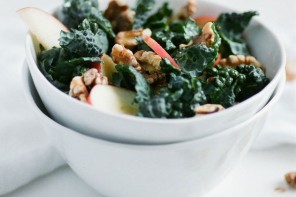There’s no doubt about it: a vegetarian diet is healthy and eco-friendly. But is it unhealthy for children not to eat foods such as meat or dairy when they are growing?
Eco babies
If a vegetarian lifestyle is important to you, you might want your children to start out loving their greens from an early age, too. The pros of doing this is that they are likely to respect animal life from an early age, understand the importance of caring for the environment, plus they will be lowering their carbon footprint by not eating meat.
What’s the catch?
Your child’s vegetarian diet is not going to do them any good if they are spending hours in front of the TV or computer, or if they end up eating lots of junk food on the side. All these bad lifestyle habits can be unhealthy for them and the environment, making their vegetarian diet a bit pointless. Make sure that your child’s vegetarian diet is part of an overall healthy lifestyle. It’s also important to remember that anything extreme in one’s diet can be dangerous, even if what is extreme is the amount of fruits or vegetables your child is consuming.
Balance is key
One of the problems with letting your children become vegetarians is that they might not get the nourishment they need in order to grow and be healthy. It’s important to remember that children have higher nutrient needs than adults. There are some nutrients for which meat, eggs and dairy are the only natural source, such as vitamin B12. This nutrient aids in ensuring health of your nervous system, so it’s important that kids get enough of it.
Taking dairy completely out of your child’s diet, for example, is also dangerous, since calcium is another nutrient that is vital for children. Calcium strengthens bones and teeth, regulates heart functioning and ensures that the muscles work at their best. It could therefore be a good idea to settle on a more balanced approach with your child’s diet. Perhaps your child can be raised flexitarian or semi-vegetarian, meaning that he or she does not follow a strict vegetarian diet of avoiding all animal products, including meat, eggs, fish and dairy.
Green gains
In spite of the above, there are some nutrients for which a vegetarian diet works wonderfully. For instance, iron is not only available in meat; it can be sourced from iron-fortified cereals, beans, dried fruits and lentils. Protein is also not difficult to top up on in a vegetarian lifestyle, contrary to popular belief, as it is available from plant foods, legumes, nuts and whole grains.
Plan their meals correctly
If you are starting your babies on vegetarian or semi-vegetarian diets, it’s important to avoid food allergies from striking. Wait until they are over a year old to give them whole milk, egg whites and peanut butter. As they grow you can bring other foods into the mix. It’s important to keep track of what your children are eating, if they’re getting enough of a broad spectrum of foods and if they’re topping up on nutrient-rich meals. Children need more calories to grow, so encourage them to eat small, frequent meals throughout the day that are packed with high-calorie and nourishing foods, such as dark green vegetables, whole grains and brown rice.
Use this tip for meal planning: make sure every meal you feed your child contains a source of protein (eggs, beans, or milk products), a grain (cereal, rice, pasta) as well as a vegetable/fruit. For instance, breakfast could include iron-packed cereal, eggs and a banana, while lunch could be delicious spinach-filled pasta with a cup of milk.











